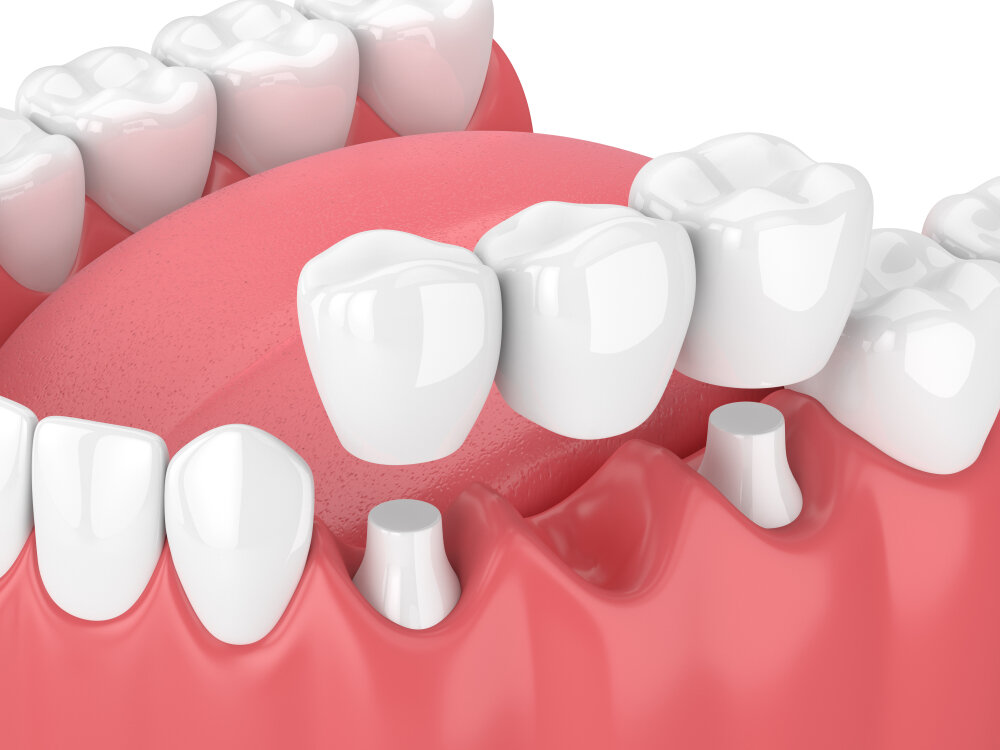Dental Implants vs. Bridges
Losing a tooth can be scary and frustrating. Missing teeth negatively impact a patient’s life and can damage their self-confidence. The two most common treatments for missing teeth are dental bridges and implants. Understanding these procedures will help you decide which option best suits your needs.
Bridges
A bridge is placed over the missing tooth and connected to the teeth on either side of the gap. Typically, the surrounding teeth are shaved down to fit the bridge properly. A cap is then placed over each tooth and connected to the bridge to replace the missing tooth. There are three main types of bridges. Your dentist will recommend the best bridge for you based on how many and what type of teeth surround the gap. Here are some of the pros and cons of dental bridges:
Pros:
Less expensive than implants
More likely to be covered by insurance
Faster procedure (around 3-4 weeks)
Doesn’t require oral surgery
Cons:
Place strain on surrounding teeth that can lead to damage or decay
Have to be replaced periodically
Less aesthetically pleasing than implants
Implants
An implant replaces the root of your tooth with a metal post typically made of titanium. New bone grows around the implant over a period of a few months. Your dentist will monitor the bone growth and ensure the new structure is secure. After everything is properly aligned, a crown is screwed into the top of the implant and sealed into place. Here are some of the pros and cons of implants:
Pros:
Help bone structures heal
Less likely to damage surrounding teeth than bridges
Can last a lifetime if properly cared for
Nearly indistinguishable from natural teeth
Cons:
Require oral surgery and multiple procedures
Entire treatment takes several months
More expensive than bridges
Both crowns and bridges are effective treatment options for missing teeth. Please contact Midland Dental at (801) 317-4407 today with any questions about our bridges or implants.

